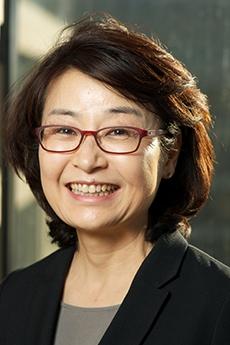Algorithms and Theory
Algorithms and Theory
Theoretical computer science research at GW spans from algorithmic foundations of machine learning and natural language processing to graph algorithms to analyzing security of elections and designing provably-secure cryptographic protocols. Our work in this area tries to answer questions like:
- How can we design new algorithms that support machine learning and natural language processing?
- How can we build cryptographic protocols that enable mutually distrusting parties to collaborate on private data?
- How can we verify election outcomes without being required to trust election officials or voting system software?
- How can we use graph algorithms to optimize communication networks?
Research Highlights
Professor Abdou Youssef
The work of Professor Abdou Youssef and his students addresses some theoretical and design aspects in Machine Learning and Natural Language Processing (NLP). Specifically, the group designs new algorithms and models for generating and analyzing figurative language, for detecting and correcting errors in natural language, for text summarization, and so on. Besides designs, foundational aspects of explainability and interpretability in AI/ML are being developed. In addition, Professor Youssef and some of his students are developing math language processing (MLP) techniques for part-of-math tagging, math disambiguation, equation parsing, and various NLP-like fundamental tasks adapted to MLP. Precise definitions of those fundamental MLP tasks, and developments of benchmarks and datasets for those tasks, are another current focus of Professor Youssef.
Professor Poorvi Vora
Professor Poorvi Vora is making sure every vote gets counted correctly and securely. Her research on verifiable voting systems puts the theory of cryptography to practice so voters in an election can audit outcomes without requiring them to rely on the trustworthiness of election technology or unobserved election processes. The software developed by Professor Vora's team—including several GW undergraduate and graduate students—has been used to run verifiable municipal elections and is integrated as an option in the election audit software package used by election officials in 2020.
Professor Arkady Yerukhimovich
Professor Arkady Yerukhimovich leads research on applied and theoretical cryptography. His research focuses on building provably-secure protocols to enable parties to collaborate to extract global information from personal, private data. For example, Professor Yerukhimovich has developed protocols to enable large-scale secure multi-party computations and used them to privately measure statistics of the Tor network. Additionally, he has developed improved systems for secure database search and for fake news identification in end-to-end encrypted messaging systems.
Faculty







